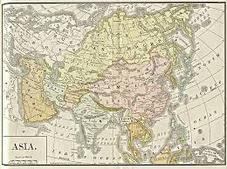
Given this state of affairs, it seems clear that the aims of the white paper will not be realised in the time frame given. What the white paper is proposing is essentially the entire transformation of Australia’s ethnic and cultural identity, asking a predominantly Anglo-Saxon, Eurocentric, English-speaking population to embrace Asia in order to secure its future. As a majority of Australia’s history has been marked by a distinct aversion to forging closer ties with Asia, to overturn decades (if not centuries) of traditions founded upon Christianity, Roman and English law, European and American history and the dominant nature of English is asking a lot of the Australian population, all the more so when it appears that the government is not prepared to provide the resources to make its ambitions a reality.
A brief examination of mass media outlets in Australia does not give one hope that Australia is about to embark upon a radical transformation of its character. Commercial networks in Australia broadcast exclusively in English and show content that is overwhelmingly Anglo-American. The national broadcaster the ABC follows suit, with any ‘ethnic’ broadcasts confined to SBS, and even these are becoming fewer and far between (mostly 30 minute broadcasts of news bulletins from around the world in native languages throughout the morning). The nation’s newspapers, those that have a readership of half a million or more, are in English. A majority of radio broadcasts (except for those made by SBS and community radio stations) are in English. Most websites and blogs (including this one) are in English. To diversify this level of linguistic domination will take a considerable degree of investment from the government of the day, however the fixation of the Labor government on trying to bring the federal budget back to surplus (a Sisyphean task, it turns out) means that the funding isn’t there to achieve the goals of a foreign language revolution in Australian society.
It all smacks of political expediency, especially considering the fact that there will be a federal election in Australia on September 14, and all predictions are that the current Labor government will be swept out of power. As the Coalition opposition have not given their support to the Asian Century white paper (as they hold their own policies towards Asia, which mostly involve boosting the number of students learning Asian languages – a partial solution to a much broader issue – an enacting a `new Colombo plan` to send thousands of Australian students to countries in Asia to absorb the languages and cultures of the region), it seems that the Australia in the Asian Century white paper is doomed to disappear with the government come September. It may still be referred to by committees on language education, or foreign affairs, but its usefulness will be limited.
The white paper will also be used to gauge just how overly optimistic the Gillard government was about regional security issues, and the idea that economic concerns would trump any lingering animosity between states over access to resources and territorial claims. Examples of resource sharing between Malaysia and Thailand have been spruiked by Foreign Minister Carr as proof that nations can put aside differences and pursue common goals, but only when the resources in question do not intertwine with territorial demands and there are no lingering concerns stemming from history. In the case of Asia such examples are rare, and it is optimistic to the point of negligence to expect this to become the status quo in the current regional climate.
While the Asian Century white paper has value in addressing the potential of Asia for Australia`s development, it is too focused on economic needs, does not address what the current state of Asian literacy is in Australia, doesn`t provide a plan or budget for reaching its goals, and so doesn`t offer any practical means of changing the monolingual, Euro-centred culture that defines modern Australian society. A society is a product of its past and present. Changing it for the future requires a considerable degree of forethought and investment which transcend political goals and short term gains. Only a government that has the ability for long term planning and a willingness to provide funding for its plans will create the change that both sides of politics recognise is important for the nation. It won`t happen under the current government, and it is unlikely to occur under its successor, either.
 RSS Feed
RSS Feed